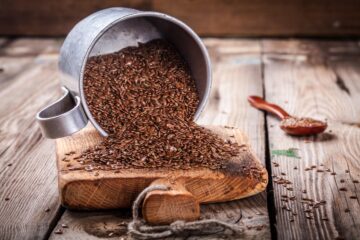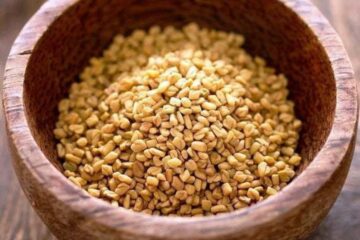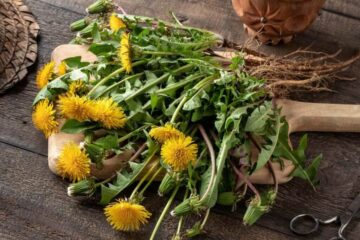Name:
The herb commonly known as Bilberry is scientifically referred to as Vaccinium myrtillus, which belongs to the Ericaceae family.
Description:
The bilberry plant is a small, perennial shrub that stands about 16-40 centimeters (6-16 inches) tall. It possesses alternating, simple, deciduous leaves that are broadly elliptical and about 1-3 cm in length. Its branches are angular and greenish-brown in color. Bilberry produces spherical, solitary flowers that are pink or white. The fruits of this plant are dark purple to almost black berries, closely resembling blueberries, and are about 6-9 mm in diameter.
Medicinal Uses of Bilberry:
- Vision : The herb commonly known as Bilberry is scientifically referred to as Vaccinium myrtillus, which belongs to the Ericaceae family.
- Health : One of the most well-studied benefits of bilberry is its potential to support eye health. It is believed that bilberry can improve visual acuity and adaptability to light changes. This potential benefit is thought to come from a group of compounds in bilberries called anthocyanosides. Anthocyanosides are a type of flavonoid with potent antioxidant properties that can protect the eye’s retina from oxidative stress. According to a review study published in the “Survey of Ophthalmology,” anthocyanosides can strengthen the walls of blood vessels in the eyes, reduce inflammation, and stabilize tissues containing collagen, such as the cornea and the lens. The study suggested that anthocyanosides could potentially improve symptoms of disorders like cataract and retinopathy. Source: Survey of Ophthalmology, “The role of anthocyanins in the management of eye diseases: https://www.sciencedirect.com/science/article/abs/pii/S0039625720301653.
- Heart Health : Bilberry also holds potential cardiovascular benefits. The antioxidant properties of the flavonoids in bilberries may help lower the risk of cardiovascular diseases by protecting against the oxidation of LDL (low-density lipoprotein) cholesterol, a process implicated in the development of atherosclerosis.A study conducted by the Department of Nutrition at the University of California, Davis, highlighted that flavonoid-rich foods like bilberries could improve several markers of cardiovascular health, including reducing inflammation and improving blood lipid profiles. Source: “Flavonoid-rich foods and their impact on blood lipid profiles: A review,” Department of Nutrition, University of California, Davis: https://pubmed.ncbi.nlm.nih.gov/32278991/.
- Blood Sugar Regulation : Bilberry may help regulate blood sugar levels. A study published in the “Journal of Nutrition” found that bilberry extract had a beneficial impact on blood sugar control in mice. However, this is early research, and more human studies are needed to establish the efficacy of bilberries in managing blood sugar levels in people. Source: Journal of Nutrition, “Anthocyanins from bilberry (Vaccinium myrtillus L.) alleviate prandial hyperglycaemia by inhibiting α-glucosidase”: https://academic.oup.com/jn/article/141/6/1099/4600151.Please note: While the benefits mentioned are backed by scientific research, these should not replace professional medical advice. Always consult your healthcare provider before starting any new treatment or supplement. Individual responses can vary, and what works for one person may not work for everyone.
- Digestive Health : Bilberry has traditionally been used to alleviate gastrointestinal issues. The fruit’s high content of tannins gives it astringent properties, making it potentially beneficial in treating diarrhea and other digestive problems. A study published in the “Journal of Agricultural and Food Chemistry” reported that tannins from berries like bilberries may have potential anti-inflammatory effects that could be helpful in managing inflammatory bowel diseases. However, more research in humans is needed to substantiate these benefits. Source: Journal of Agricultural and Food Chemistry, “Berry Phenolics: Antimicrobial Properties and Mechanisms of Action Against Severe Human Pathogens”: https://pubs.acs.org/doi/abs/10.1021/jf062992v.
- Anti-Aging Effects : Bilberries are rich in antioxidants, primarily anthocyanins, which have been studied for their potential anti-aging benefits. These antioxidants may help combat oxidative stress, one of the primary causes of aging and age-related diseases. A study conducted by the National Institute on Aging suggested that foods rich in antioxidants like bilberries might help slow the aging process and protect against age-related conditions such as Alzheimer’s and cardiovascular diseases. However, additional research is needed to confirm these potential benefits. Source: National Institute on Aging, “Dietary Intake of Berries and Flavonoids in Relation to Cognitive Decline”: https://www.ncbi.nlm.nih.gov/pmc/articles/PMC3650512/.
- Cancer Prevention : Research suggests that the antioxidants in bilberries may offer some protection against certain types of cancers. A study conducted by the American Institute for Cancer Research found that the anthocyanins in berries, like bilberries, could inhibit the growth of cancer cells and reduce inflammation, a key factor in cancer development. However, more studies are required to establish the role of bilberries in cancer prevention. Source: American Institute for Cancer Research, “Anthocyanins and Their Role in Cancer Prevention”: https://www.aicr.org/resources/blog/anthocyanins-and-their-role-in-cancer-prevention/.
Origin and Distribution:
Bilberries are native to Northern Europe, particularly Scandinavia, the British Isles, Eastern Europe, and certain regions in North America like Canada. Today, it’s cultivated in several areas globally but thrives best in cool, moist, and acidic soils typical of its original habitats
Cultivation and Care:
Bilberry plants prefer acidic soils (pH 4.5-5.5) and do best in cool, damp climates with good exposure to sunlight. While the plant is relatively low-maintenance, it requires consistent watering, especially during dry periods, and good drainage to prevent root rot.
Harvesting and Storage:
The bilberry fruit is typically harvested in late summer. After harvesting, the berries can be eaten fresh or used to make pies, jams, or other food products. For longer storage, the berries can be frozen or dried and kept in a cool, dry place.
Uses:
Culinary Uses: Bilberries are often used in culinary preparations such as jams, jellies, pies, and sauces. They are also used to flavor liqueurs and wines.
Medicinal Uses: Bilberries have been traditionally used in medicine for centuries. According to the National Center for Complementary and Integrative Health (NCCIH), bilberries have potential health benefits for eye health, particularly improving night vision and slowing macular degeneration. Source: https://www.nccih.nih.gov/health/bilberry.
Other Uses: Aside from culinary and medicinal use, bilberries are also used as natural food dyes due to their deep blue-purple color.
Safety Information:
While generally safe when consumed as food, excessive intake of bilberry may cause potential side effects like diarrhea. Bilberries may also affect blood sugar levels and could interfere with diabetes medication. Pregnant or breastfeeding women are advised to use it cautiously
Historical and Cultural Significance:
Historically, British pilots in World War II ate bilberry preserves because they believed it improved their night vision. While this is largely folklore, the belief propelled research into bilberries’ potential benefits for eye health.




